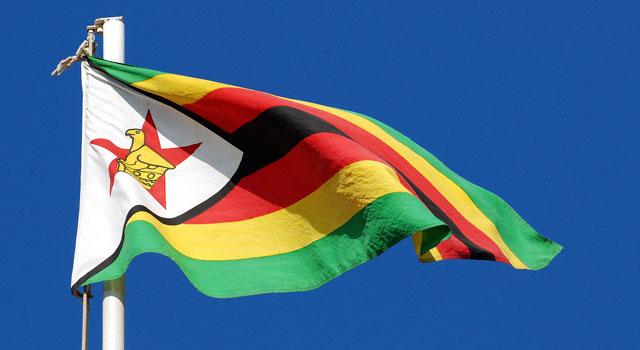News / National
Zimbabwe's ballooning US$21 billion debt spirals out of hand
15 Sep 2024 at 09:06hrs |
0 Views

Citizen Coalition for Change (CCC) Mbizo Member of Parliament (MP), Corban Madzivanyika, has raised alarm over Zimbabwe's escalating public debt, which has now surpassed US$21 billion. During a recent debate on the 2024 Mid-term Budget and Economic Review in Parliament, Madzivanyika criticized the government's handling of public finances and lack of transparency in evaluating foreign investments.
Madzivanyika highlighted a stark increase in the national debt from US$17 billion in December 2023 to over US$21 billion within a year. This surge, he argued, threatens to undermine the country's economic growth prospects and its Vision 2030 goals.
"It is clear that the debt question has gone out of hand for Zimbabwe. Let us be honest with each other. Only last year, by December 2023, our debt position was US$17 billion, but it ballooned by more than US$3 billion to US$21 billion," Madzivanyika said.
The MP specifically questioned the valuation of recent investments, such as the government's recapitalization of the Mutapa Investment Fund with US$1.9 billion and its purchase of a 35% stake in Kuvimba Mining for US$1.6 billion. He raised doubts about the valuation of Kuvimba Mining, suggesting that if 35% of the company was worth US$1.6 billion, the entire company's value would be approximately US$4.6 billion - a figure he deemed questionable.
"Can you honestly tell me that those companies are worth US$4.6 billion? If so, what is our duty today?" Madzivanyika questioned, referring to Kuvimba Mining's subsidiaries, including Sandawana Mine, Freda Rebecca, Jena Mines, Zim Alloys, Shamva Gold Mine, and Great Dyke Investments.
Madzivanyika also criticized the government's focus on large projects that he believes have minimal impact on the struggling economy, suggesting that investments like the Batoka Energy Hydroelectric power plant could address critical issues like electricity shortages more effectively.
He underscored the negative impacts of the burgeoning debt on social spending and future borrowing capabilities. "The problem of debt is the recurrent expenditure. The money that was supposed to be allocated to social protection - like addressing street kids, drought relief, and other social issues - is now being used for debt repayment," he said.
The MP called for a more prudent approach to managing the country's debt, stressing the need for parliamentary approval before undertaking further borrowing or financial guarantees. "We need to improve on how we handle the debt issue. There must be no borrowing and no guarantees without parliamentary approval," Madzivanyika concluded.
As Zimbabwe grapples with its escalating debt crisis, the need for transparency and accountability in financial management has never been more urgent.
Madzivanyika highlighted a stark increase in the national debt from US$17 billion in December 2023 to over US$21 billion within a year. This surge, he argued, threatens to undermine the country's economic growth prospects and its Vision 2030 goals.
"It is clear that the debt question has gone out of hand for Zimbabwe. Let us be honest with each other. Only last year, by December 2023, our debt position was US$17 billion, but it ballooned by more than US$3 billion to US$21 billion," Madzivanyika said.
The MP specifically questioned the valuation of recent investments, such as the government's recapitalization of the Mutapa Investment Fund with US$1.9 billion and its purchase of a 35% stake in Kuvimba Mining for US$1.6 billion. He raised doubts about the valuation of Kuvimba Mining, suggesting that if 35% of the company was worth US$1.6 billion, the entire company's value would be approximately US$4.6 billion - a figure he deemed questionable.
"Can you honestly tell me that those companies are worth US$4.6 billion? If so, what is our duty today?" Madzivanyika questioned, referring to Kuvimba Mining's subsidiaries, including Sandawana Mine, Freda Rebecca, Jena Mines, Zim Alloys, Shamva Gold Mine, and Great Dyke Investments.
Madzivanyika also criticized the government's focus on large projects that he believes have minimal impact on the struggling economy, suggesting that investments like the Batoka Energy Hydroelectric power plant could address critical issues like electricity shortages more effectively.
He underscored the negative impacts of the burgeoning debt on social spending and future borrowing capabilities. "The problem of debt is the recurrent expenditure. The money that was supposed to be allocated to social protection - like addressing street kids, drought relief, and other social issues - is now being used for debt repayment," he said.
The MP called for a more prudent approach to managing the country's debt, stressing the need for parliamentary approval before undertaking further borrowing or financial guarantees. "We need to improve on how we handle the debt issue. There must be no borrowing and no guarantees without parliamentary approval," Madzivanyika concluded.
As Zimbabwe grapples with its escalating debt crisis, the need for transparency and accountability in financial management has never been more urgent.
Source - NewZimbabwe
Join the discussion
Loading comments…









































